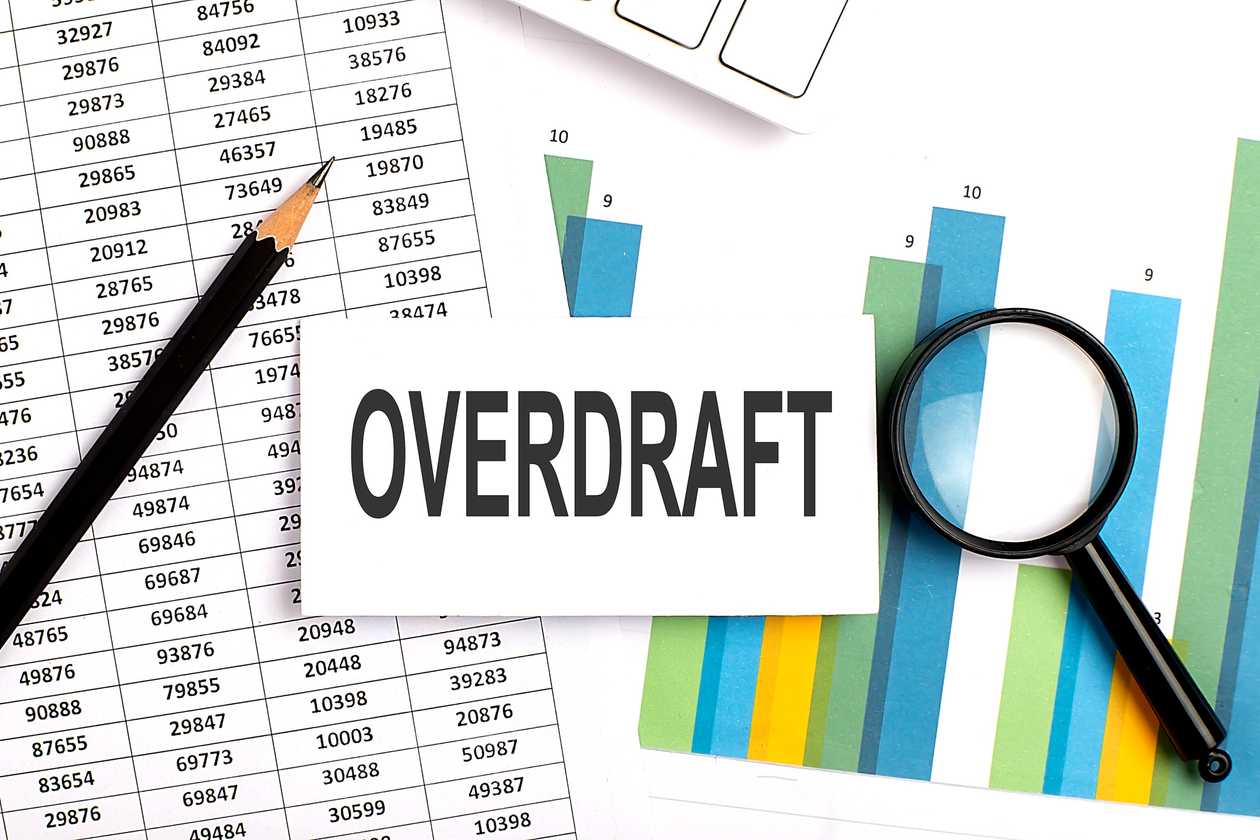
An overdraft charge happens when a financial institution or credit score union permits a transaction to undergo regardless that you won’t come up with the money for in your account to cowl it. That is known as an overdraft as a result of extra money has been taken out of your account than you’ve gotten accessible.
Nonetheless, for the reason that financial institution is protecting the fee, they could cost you a charge. This is named an overdraft charge. Overdraft charges are among the many most typical checking account charges. The truth is, banks rely closely on overdraft and different checking account charges as a big income.
Let’s take a better have a look at overdraft charges and the way a lot they’re costing you.
Overdraft vs. NSF charges
Overdraft and NSF charges are several types of checking account charges.
- Overdraft charges: You won’t come up with the money for in your checking account, however the financial institution lets the transaction undergo, leading to overdrawing (or “overdrafting”) your account. The financial institution primarily lends you cash, protecting the fee in your behalf. The financial institution then costs you a charge for this service.
- NSF charges: Nonsufficient fund charges, or NSF charges, are charged when the financial institution doesn’t let a transaction undergo. For those who don’t have the cash in your account, the financial institution returns the transaction and costs you a charge for sending it again. You may additionally be topic to charges from the entity you tried to pay.
Based on the Client Monetary Safety Bureau (CFPB), overdraft and NSF charges make up about two-thirds of banks’ reported revenues from charges as of December 2021.
How a lot are overdraft charges actually costing you?
Overdraft charges can take a toll in your pocketbook. In 2022, the common overdraft charge was $29.80. The overdraft charge is charged for every transaction that goes by way of when you don’t come up with the money for in your account.
For instance, let’s say you’ve gotten $100 in your checking account. You could have three transactions: $75, $40 and $30. The financial institution debits the primary transaction, $75. This doesn’t go away sufficient cash in your account for the following two transactions. The financial institution spots you the money, bringing your steadiness to -$45.
Nonetheless, the financial institution costs an overdraft charge of $30. You could have two transactions that triggered overdraft charges, in order that’s a complete of $60 in overdraft charges. Now your account steadiness is -$105. It is advisable to make up that distinction earlier than your account is again in good standing.
A Brookings examine confirmed {that a} frequent overdrafter would possibly generate $720 in revenue a yr , whereas somebody who has a primary checking account and doesn’t overdraft solely generates about $57 a yr in revenue for a financial institution.
Methods for avoiding overdraft charges
If overdraft charges are costing you, it is likely to be time to take a step again and search for methods to keep away from these charges. Listed below are some methods you should utilize to scale back the prospect that you just’ll be charged an overdraft charge:
- Rigorously observe your spending and funds. Maintaining observe of how a lot cash you’ve gotten and the place it’s going, in addition to having a plan on your cash, will help you keep away from overdrawing your account.
- Arrange account alerts. Many banks will ship a textual content alert or push notification from its app in case your account steadiness is getting low. This is usually a good approach to stay conscious of your steadiness and scale back the prospect of overdrafting.
- Search for an account with out overdraft safety. Overdraft safety is a service supplied by banks that enable transactions to undergo, even in case you don’t have sufficient funds within the account. You possibly can search for an account, like a few of these supplied by Capital One Financial institution, that don’t provide overdraft safety. You too can choose out of overdraft safety with most financial institution accounts.
- Ask to waive overdraft charges. Some banks and credit score unions will waive a sure variety of overdraft charges every year. You would possibly be capable to get the charge reversed simply by asking. Different banks haven’t any overdraft charges in case your account is overdrawn by lower than a certain quantity, reminiscent of $20 or $50.
Search for banks with no overdraft charges or accounts that present you totally different decisions for overdraft safety.
What’s one of the best overdraft possibility for me?
The perfect overdraft possibility for you is the one which works finest along with your private finance state of affairs. If you end up always overdrawing your account, you would possibly have to search for underlying causes of your money stream points. You would possibly think about opting out of overdraft safety till you perceive and tackle money stream.
One other consideration is having the safety for infrequent errors and issues. Utilizing a financial institution that received’t cost a charge for small overdrafts or that gives you the chance to waive an overdraft charge every year would possibly make sense.
Rigorously think about how you utilize your financial institution and its companies, in addition to how cash flows by way of your private economic system as you evaluate overdraft choices.
Tips on how to get banks to waive an overdraft charge
There’s no assure that your financial institution will waive an overdraft charge, however it’s doable to ask. Listed below are some steps you may take to probably get an overdraft charge waived.
- Test the financial institution’s overdraft coverage. Discover out in case you qualify for no charges, or having a charge waived.
- Name the financial institution’s customer support quantity and communicate with a consultant.
- Be ready to elucidate your state of affairs and share why you’ve gotten an overdraft. In some circumstances, you would possibly be capable to have a charge waived.
- The much less usually you’ve gotten an overdraft, the extra seemingly you might be to have a charge waived.
Glossary of overdraft phrases
- Overdraft: When a transaction exceeds the sum of money you’ve gotten in your account.
- Overdraft charge: The charge charged by the monetary establishment for permitting you to overdraw your account.
- Overdraft safety: A program by which you give the financial institution permission to permit transactions that exceed your steadiness.
Overdrafts are an avoidable expense
Overdraft safety is usually a useful gizmo in case you don’t usually exceed your account steadiness however are frightened about protecting a short-term expense. Then again, utilizing overdraft safety an excessive amount of can result in excessive charges and value you a whole bunch of {dollars} over the course of a yr.
Regularly requested questions (FAQs)
Are charges charged for each overdraft I make?
Sure. Some banks cost a charge for every transaction thought-about an overdraft.
Can overdraft charges be refunded?
In some circumstances, a financial institution or credit score union would possibly refund your overdraft charge. It is advisable to observe a longtime course of for asking on your charges to be waived.
What’s an precise overdraft instance?
An instance of an overdraft can be you probably have $100 in your account, however you’ve gotten a transaction for $130. The financial institution would enable the transaction to undergo, leading to a steadiness of -$30. If the financial institution costs an overdraft charge of $30, that may be added to your destructive steadiness, bringing it to -$60. You would want to pay all the quantity you’re behind to deliver your account again into good standing.
The data offered right here is created independently from the TIME editorial workers. To study extra, see our About web page.
